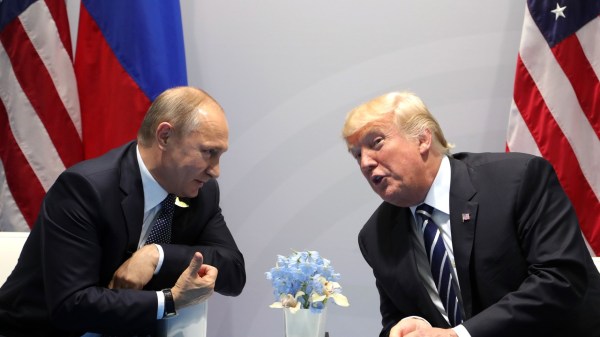Senators call for DOJ investigation of Fancy Bear’s ‘CyberCaliphate’ ruse

A bipartisan pair of senators is calling on the Department of Justice to investigate the alleged harassment of U.S. military families by Russian government hackers posing as Islamic State sympathizers.
“We urge you to investigate this potential false flag operation and to hold any perpetrators accountable,” Sens. Cory Gardner, R-Colo., and Ron Wyden, D-Ore., wrote in a July 9 letter to Attorney General Jeff Sessions.
The senators’ call for an inquiry builds on evidence that Russian military hackers have masqueraded as Islamic State extremists to harass U.S. military family members.
A group calling itself the CyberCaliphate sent death threats to the wives of U.S. military personnel in 2015. However, activity from the CyberCaliphate coincided with attempts by the Russian hacking group, known as APT28 or Fancy Bear, to breach the women’s email accounts, the Associated Press reported in May.
The same Russian hacking group is accused of meddling in the 2016 presidential election. News of the letter came the day that Deputy Attorney General Rod Rosenstein announced the indictment of 12 Russian military intelligence officers for allegedly hacking the Democratic National Committee and other organizations in the run-up to the election.
“If substantiated, the claims about APT28 posing as the CyberCaliphate could be the first public evidence that influence operations have specifically targeted American military families,” wrote the senators, who represent states where two of the harassed spouses live.
“If left unchecked, such operations would threaten the personal liberty, financial security, mental health, and morale of our military families,” Gardner and Wyden added.
The U.S. intelligence community concluded that the Russian hackers intervened in the election in an effort to help elect Donald Trump, a finding the U.S. president has repeatedly dismissed. Moscow has denied orchestrating such hacking operations against the United States.
Trump is scheduled to meet with Russian President Vladimir Putin next week.
You can read the full letter below.
[documentcloud url=”http://www.documentcloud.org/documents/4599450-07-09-18-DOJ.html” responsive=true height=500]






